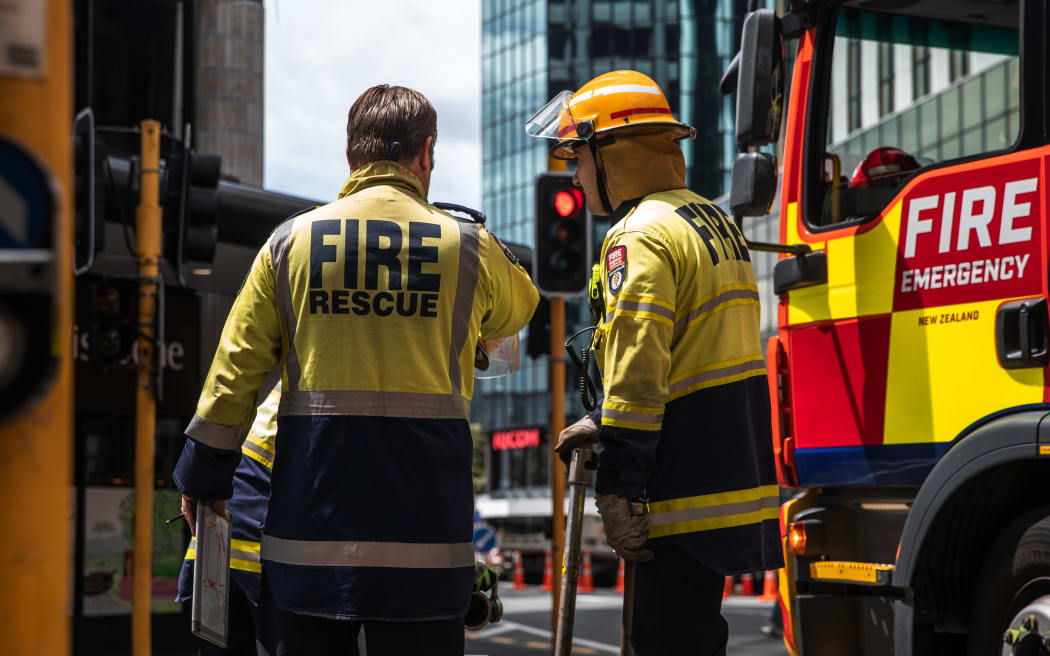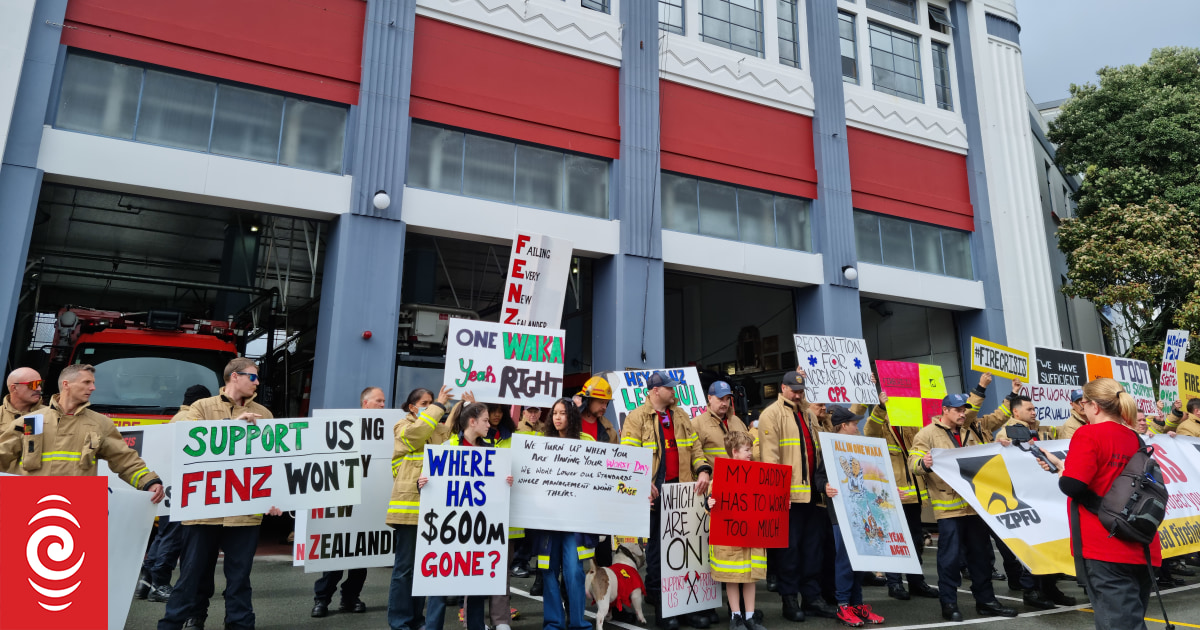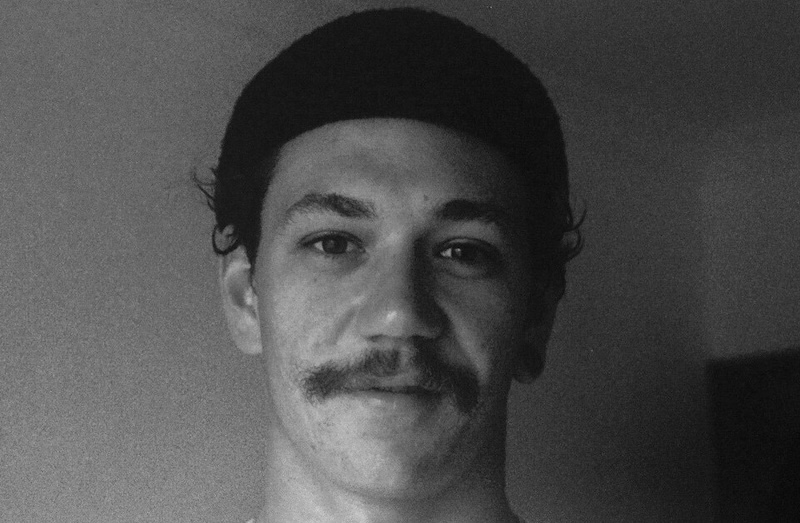Ratification meetings on the settlement with FENZ are being held around the country.
Photo: RNZ / Angus Dreaver
Over the last 18 months, people passing by the Auckland City Fire Station have grown familiar with the sight of fire trucks tagged with liquid chalk – messages like “fire crisis”, “serving our people scraps”, and “dire emergency”.
All this will soon be removed, the trucks made clean and shiny again, if a settlement including pay rises for firefighters of up to $20,000 goes through.
But New Zealand Professional Firefighters Union (NZPFU) members said there was still a lot of work to be done to rebuild trust after the heated negotiations.
“These problems have been brewing for a long time, and they haven’t been a secret for any firefighter in this country,” Auckland union representative Jamie Whitehead said.
He has been a firefighter for almost 20 years and said the settlement with Fire and Emergency New Zealand (FENZ) had been a long time coming – though it was not quite there yet.
“Ratification meetings are on Friday and Saturday in Auckland, and there’s still another 10 days of that around the country, so things aren’t guaranteed yet.”
Whitehead said the settlement – which included a pay rise of up to 24 percent over three years – was making up for many years of low pay increases.
He said FENZ had ongoing issues with recruitment and retention, meaning existing firefighters were often severely overworked, and the people tasked with keeping the public safe could be putting themselves or others in harm’s way.
Whitehead who has young children said a 70-hour week was quite normal for him.
But he was at the lower end of the spectrum, with some firefighters working 90-100 hours.
“It takes a toll on your life at home because you just don’t have time, and you’re stressed because you’re at work all the time.
“We had incidents where people fell asleep in the car on the way home.”
FENZ recruitment assessor Cameron Graham said becoming a firefighter had not been an option for many people supporting families. He hoped increased base salaries would help to attract more people into the profession.
“No matter how badly I want to be a firefighter, if I cannot financially afford it, then I can’t even apply for the job.”
The settlement also included better psychological support and blood screening for occupational cancers.
Graham said while these were welcome initiatives, issues within the organisation remained.
“Yeah, okay, there’s a new contract that is getting voted to be ratified, but there’s still a systemic issue within the management of FENZ.”

Issues within the organisation remain, a recruitment assessor says. File pic
Photo: RNZ / Samuel Rillstone
Real work lies ahead
Senior firefighter Josh Nicholls said while some people may assume the settlement was already resolved, union members still needed to sign it off.
And after that, he said, the real work would begin.
“Signing the contract doesn’t mean that all this stuff goes away. We need to now ensure that what we’ve agreed to in our collective employment agreement is now delivered on.
“That is going to take some time; that’s not just going to change overnight, so now the ball goes back into Fire and Emergency New Zealand’s court to deliver on those contractual obligations that we have collectively agreed on.”
Fire and Emergency chief executive Kerry Gregory said the negotiation process had been long and complex.
“When it started 18 months ago, there were over 140 different claims on the table.
“It took a long time to work through all of those and really get to the heart of what’s important for firefighters, from their perspective, but also from the organisation, on things that we wanted to uplift through the contract.”
If signed off by union members, firefighters would receive a pay rise of between $10,000-$20,000 from next July.





















Discussion about this post